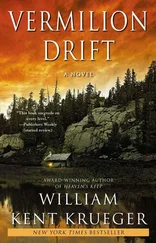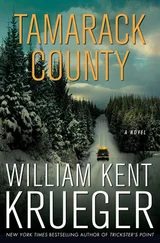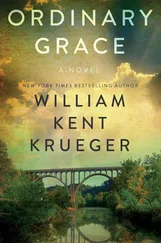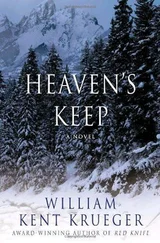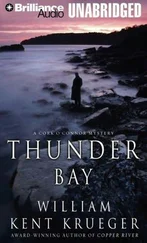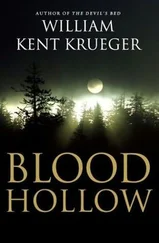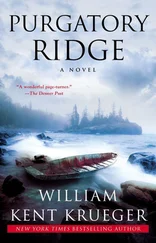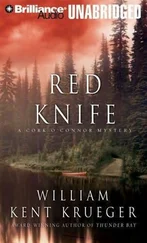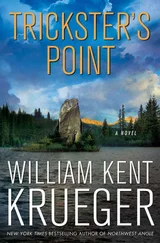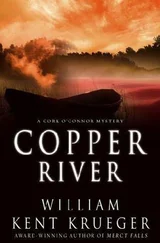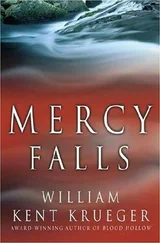Cork began planning for what he knew would come then.
* * *
She’d heard the engines kick in and had listened as they whisked the man to the island where the girl had been murdered, and then she’d waited, which was hard to do. She wanted desperately to be up on the rock with her father, observing the man’s movements, knowing the way things stood. But the baby couldn’t be left alone, and she knew that one more body above the trees would be one more object the man who hunted them might spot. Better, she understood, to stay below, to see to the baby, and to trust that her father would be her eyes.
But she could still use her brain.
She was thinking: What if the man checked the whole of that devastated island? And what if he found the shelter she’d built but didn’t find her? What would he think? What would he do?
She paced, cradling the baby, who was sound asleep in her arms. Dragonflies darted through the shafts of sunlight, and bees hovered around what might have been the only wildflowers for miles. She barely noticed these things, because her mind was so focused on trying to anticipate the thinking of the man who hunted them.
He would, she decided, wonder first if they’d been rescued, but the evidence—the smashed dinghy, the shelter itself, and the fact that they were in a terribly remote area of the lake—would tell him no. If he was smart, he would understand that they’d fled, looking for a safer hiding place. And where would that be? The only stand of undamaged trees anywhere in sight. He would eye those trees like a hawk might eye a patch of tall grass where it understood a mouse could hide. And then he would come for them.
They had to be prepared. They needed a plan.
That was as far as she’d gotten when she heard the slither of her father down the sloping face of rock. He was sweating when he finally stood before her. He looked grimly at the baby.
“He sleeps like a log, thank God,” he said.
Jenny asked, “What about our hunter?”
“He’s working his way down the island, looking for us.”
“Where is he now?”
“Halfway. We’ve got maybe forty-five minutes before he reaches your shelter.”
“I’ve been thinking,” she said. “He’ll know we’re here. It’s the most logical place.”
“I agree. Unless we divert him.”
She could see that he was ahead of her in his thinking, but as soon as he spoke those two sentences, she was right there with him.
“No, Dad.”
“It’s the only way,” he said.
“Make you the target, right?”
“As unappealing as that is to me, yes.”
“There’s got to be another way.”
“I’d like to hear it.”
He waited, but they both knew he was right. Maybe if they had hours to think, to plan, to prepare, but they had only minutes.
“Where?” she said.
“The island just to the south. It’s larger than this one, so more area to hide in.”
“But no cover. Everything’s blown down.”
“This is how I figure it. There’s a bluff at this end.”
“I remember it,” Jenny said. “It’s got a cliff face that drops straight down forty or fifty feet to the waterline.”
“That’s the one. I’ll swim to the island and haul ass up the back of the bluff and make myself visible. I’m thinking our hunter friend, when he stumbles across your shelter and finds you gone, will climb that outcropping with the cedars on top. It’s got the best view of the whole area. He’ll look back at where he’s been, and then he’ll look around at other possibilities.”
“And that’s when he sees these trees.”
“Yeah. So I have to make sure that he sees me, too. Best if he sees me instead.”
“You said if you were him you’d come well armed. So he’ll probably have a good rifle.”
“Probably,” her father agreed.
“Dad, that bluff you’re talking about is only a couple of hundred yards from those cedars. Even a bad shot could pick you off easily, and I’m thinking this guy’s probably pretty good.”
“I’ll do my best not to give him much of a target. And I need to stay alive so he’ll come for me there and not give any thought to you here.”
“I don’t like this.”
“I don’t either. But we don’t have much time, so I guess we’re stuck with it.”
“What if . . .” She couldn’t bring herself to say it.
“If he gets to me? Good question. And I’ve got an answer. After he’s seen me, I’m going to make myself scarce. He’ll beat cleats back to that launch of his and come hunting me. As soon as he leaves those cedars, you put everything on the raft I made and . . .”
“And what?”
He looked at the baby, looked at him not with love but with a kind of regret. She was afraid that he was going to suggest that she leave the child behind, and if he did that, she would hate him.
“You take the baby back to the shelter,” he went on. “If our hunter gets past me, that’ll be the last place he’ll look for you. But, Jenny, you’ve got to leave no trace that we were ever here. I mean nothing, do you understand?”
“Yeah, Dad.”
“Okay.”
He took a deep breath, and then he hugged her, with the body of the sleeping baby between them. She understood that, if things went bad, it might be the last time they ever touched this way. She felt herself on the edge of despair and knew that she couldn’t allow herself to go there.
“Dad, take the knife.” She nodded toward the blade that lay next to the Coleman stove.
“No, you keep it.”
She shook her head. “If he gets through you, the knife won’t do me any good. That’s the truth, and we both know it.”
His face went hard. He took the knife and slid the blade into his belt. He kissed the top of her head as he passed, then ran for the lake.
Jenny laid the baby carefully in the wicker basket and turned to her own duty.
TWENTY
First thing in the morning, Bascombe spoke with the mainland and learned that, in addition to the missing O’Connors, half a dozen other people were still unaccounted for, all visiting fishermen staying at lodges in the area. A search effort by local volunteers was being organized. Neither Lake of the Woods County authorities nor the Coast Guard station in Warroad could send help; with the devastation that the derecho had wreaked on the communities along the lake’s southern shoreline, they already had their own hands full.
“Like always,” Bascombe said, scratching at his beard, “we’re on our own up here. But don’t worry. We know what we’re doing.”
The O’Connors were happy to believe him.
Bascombe’s boat was large enough to accommodate only three passengers comfortably, and he called a friend to lend a hand, a guy named Tony Ebnet, who was a guide at Angle Inn Lodge, a resort half a mile distant. Ebnet motored up to Bascombe’s, where he picked up Anne and Aaron and took off to search the Tug Channel and north through French Portage. Bascombe took the others in his launch. They stopped at an unmanned customs station on Cyclone Island, where he phoned in and explained the situation to both the Canadian and U.S. officials, who were, he reported, understanding. Then they continued to Windigo Island.
Over the noisy splash of the boat through the swells that rose with the wind, Bascombe explained about Windigo Island and the Reserve 37 Ojibwe.
“There are two bands of First Nations Indians in this area,” he said. “The Reserve Thirty-three Ojibwe live north of Angle Inlet. The Reserve Thirty-seven are broken into two groups. The largest bunch are way over on the northeastern side of the lake, on Regina Bay, but the administration for the band is handled by the folks here on Windigo and Little Windigo. Good people, although sometimes the men, especially the young ones, are prone to get a little drunk or a little high and get out of line. No real trouble though. Like I say, good people. We’re going to talk to a woman named Cherri Allen. I called to let her know we’re coming. She’s from the States, somewhere in Michigan. Married into the Powassin family on the island, and handles a lot of visitor issues. Canadian fishing permits, arranging for Indian guides, that kind of thing. She’ll be a good place to start.”
Читать дальше

